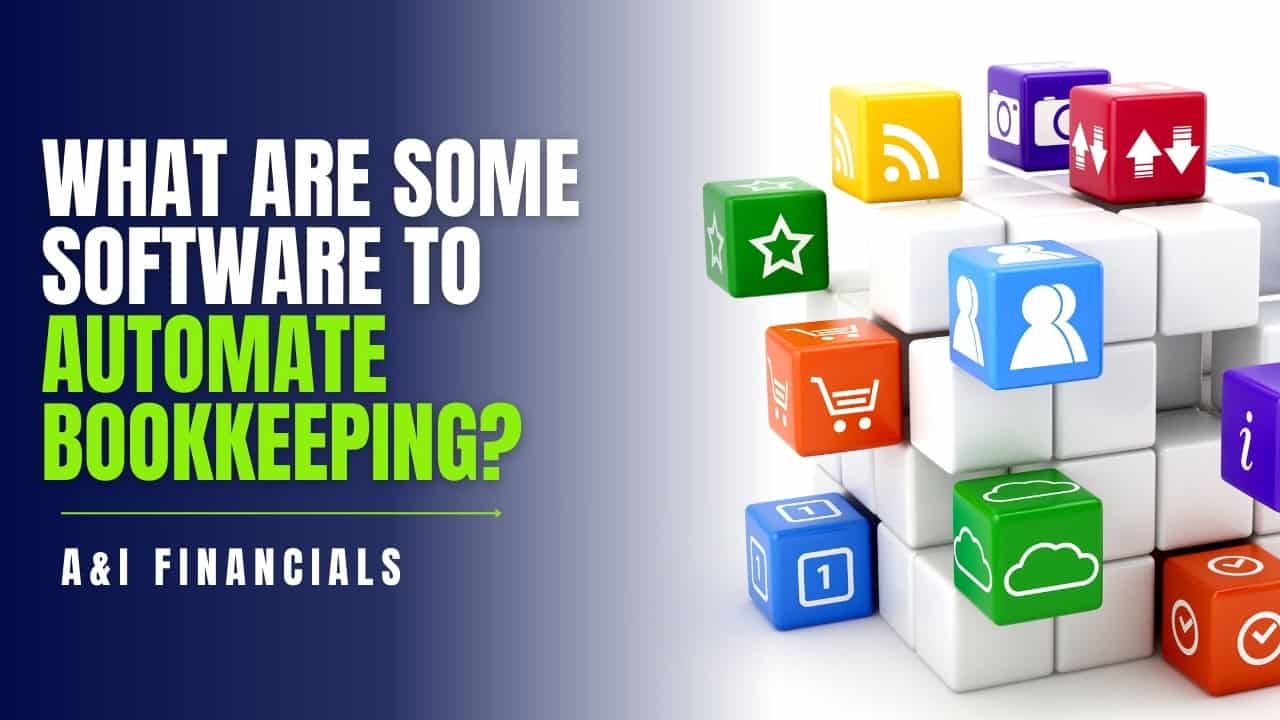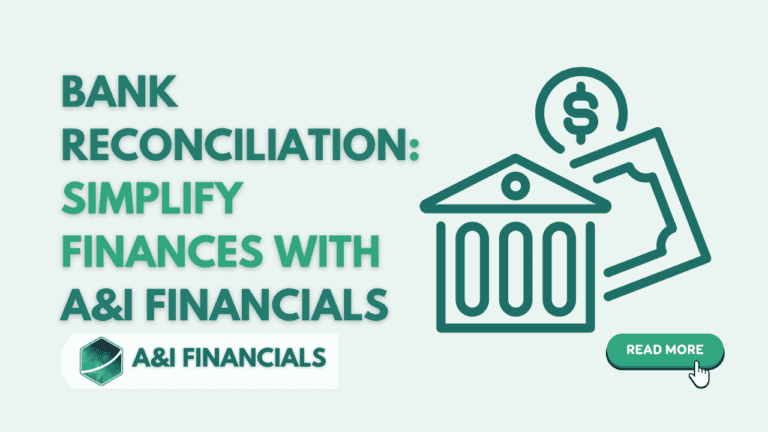What Are Some Software to Automate Bookkeeping?
Ever feel like bookkeeping is eating up too much of your time? You’re not alone. Businesses big and small face the tedious task of managing their books, but there’s a bright side: automation. Let’s dive into “What are some software to automate bookkeeping?” and learn how you can save time, reduce errors, and gain real-time financial insights. Stick with me, and by the end, you might just find the perfect solution for your needs.
Introduction to Bookkeeping Automation
Definition of Bookkeeping Automation
Bookkeeping automation is the process of using software to handle routine accounting tasks without human intervention. These tasks include data entry, invoicing, expense tracking, and bank reconciliation. By automating these processes, businesses can streamline their financial operations, making them more efficient and accurate.
Importance of Automating Bookkeeping Processes
Why bother with automation? Simple: it’s all about efficiency and accuracy. Imagine having a tireless assistant that never sleeps, never makes mistakes, and always keeps your books in order. That’s what automated bookkeeping software can do for you. It frees up your time to focus on growing your business while ensuring that your financial records are always accurate and up-to-date.
Benefits of Automated Bookkeeping Software
Accuracy and Error Reduction
Human error is inevitable, especially with repetitive tasks like bookkeeping. Automated software, however, minimizes these mistakes. By relying on technology, you can ensure that your financial data is entered correctly every time, reducing costly errors.
Time-Saving and Efficiency
Time is money, and automated bookkeeping software saves you plenty of it. It takes minutes to complete tasks that previously took hours. Need to generate an invoice? Done in a flash. Bank reconciliation? No problem. This newfound efficiency lets you focus on what really matters: your business.
Real-Time Financial Insights
One of the biggest advantages of bookkeeping software is real-time access to your financial data. No more waiting for end-of-month reports. You can see how your business is performing at any given moment, which helps in making informed decisions quickly.
Improved Data Security
Security is a top priority for any business. Automated bookkeeping software often comes with advanced security features that protect your sensitive financial information. Encryption, secure data storage, and regular backups ensure that your data is safe from breaches and disasters.
Ease of Tax Preparation
Tax season can be a nightmare, but automated bookkeeping software simplifies the process. With all your financial data organized and easily accessible, you can prepare and file your taxes with minimal hassle. Some software even integrates with tax filing services, making the process even smoother.
The Key Features to Look for in Bookkeeping Software
When choosing bookkeeping software, it’s essential to know what features matter most. Here’s a quick rundown of what to look for:
User-Friendly Interface
You want software that’s easy to use, right? A user-friendly interface ensures that you and your team can navigate the software without needing a degree in computer science.
Integration with Other Software
Good bookkeeping software should integrate seamlessly with other tools you use, like payroll systems, CRM software, and even your bank. This integration streamlines your operations and ensures that all your data works together.
Customizable Reporting
Every business has unique needs, so customizable reporting is crucial. Look for software that lets you create reports tailored to your specific requirements, whether it’s tracking expenses, income, or other financial metrics.
Invoicing Capabilities
Invoicing is a core function of any bookkeeping software. The ability to create, send, and track invoices is essential. Some software even allows for automated reminders and recurring invoices, making the process even easier.
Expense Tracking
Keeping track of expenses can be a headache. Automated software simplifies this by categorizing and tracking your expenses, ensuring that nothing slips through the cracks.
Bank Reconciliation
Reconciling your bank statements with your books is crucial for accuracy. Bookkeeping software can automate this process, saving you time and reducing the risk of errors.
Multi-User Access
If you have a team, you’ll want software that supports multi-user access. This allows different team members to access the data they need without compromising security.
Scalability
Your business will grow, and your bookkeeping software should grow with you. Look for solutions that are scalable and can handle increased data and complexity as your business expands.
Popular Automated Bookkeeping Software
Now, let’s get into the nitty-gritty: what are some software to automate bookkeeping? Listed below are some of the most popular options:
QuickBooks Online
Overview
QuickBooks Online is one of the most well-known bookkeeping software options. It’s designed for small to medium-sized businesses and offers a range of features to simplify financial management.
Key Features
- Invoicing
- Expense tracking
- Bank reconciliation
- Customizable reporting
- Integration with other tools
Pros and Cons
Pros:
- User-friendly interface
- Comprehensive features
- Strong customer support
Cons:
- Can be pricey
- Some features may require a learning curve
Pricing Plans
QuickBooks Online offers several pricing plans, starting from around $25 per month.
Xero
Overview
Xero is another popular choice, especially for businesses that need robust accounting features and seamless integration with other tools.
Key Features
- Invoicing
- Expense tracking
- Bank reconciliation
- Financial reporting
- Multi-currency support
Pros and Cons
Pros:
- Excellent integration capabilities
- Strong reporting features
- Scalable for growing businesses
Cons:
- Can be complex for beginners
- Higher pricing for advanced features
Pricing Plans
Xero’s pricing starts at around $20 per month, with higher tiers offering more features.
FreshBooks
Overview
FreshBooks is known for its ease of use and is a favorite among freelancers and small business owners.
Key Features
- Invoicing
- Time tracking
- Expense management
- Reporting
Pros and Cons
Pros:
- Very user-friendly
- Great for freelancers
- Good customer support
Cons:
- Limited scalability for larger businesses
- Fewer integration options
Pricing Plans
FreshBooks plans start at $15 per month.
Zoho Books
Overview
Zoho Books is part of the Zoho suite of business applications, offering a comprehensive solution for small businesses.
Key Features
- Invoicing
- Expense tracking
- Bank reconciliation
- Inventory management
Pros and Cons
Pros:
- Affordable pricing
- Strong integration with other Zoho apps
- Comprehensive features
Cons:
- Limited third-party integrations
- Can be complex for new users
Pricing Plans
Zoho Books starts at $9 per month.
Wave
Overview
Wave is a free bookkeeping software that offers robust features for small businesses and freelancers.
Key Features
- Invoicing
- Expense tracking
- Bank reconciliation
- Reporting
Pros and Cons
Pros:
- Free to use
- User-friendly interface
- Comprehensive features
Cons:
- Limited customer support
- May not scale well for larger businesses
Pricing Plans
Wave is free, with optional paid add-ons for additional features.
Sage 50cloud
Overview
Sage 50cloud combines the power of desktop software with cloud functionality, offering a robust solution for small to medium-sized businesses.
Key Features
- Invoicing
- Expense tracking
- Bank reconciliation
- Inventory management
- Payroll integration
Pros and Cons
Pros:
- Powerful features
- Strong security
- Integration with Microsoft Office
Cons:
- Can be expensive
- Steeper learning curve
Pricing Plans
Sage 50cloud pricing starts at around $50 per month.
Kashoo
Overview
Kashoo is a simple and affordable bookkeeping solution, ideal for small businesses and freelancers.
Key Features
- Invoicing
- Expense tracking
- Bank reconciliation
- Reporting
Pros and Cons
Pros:
- Simple to use
- Affordable pricing
- Good customer support
Cons:
- Limited features compared to other options
- Basic reporting
Pricing Plans
Kashoo starts at $20 per month.
FreeAgent
Overview
FreeAgent is designed for freelancers and small businesses, offering a range of features to manage finances efficiently.
Key Features
- Invoicing
- Expense tracking
- Bank reconciliation
- Time tracking
Pros and Cons
Pros:
- User-friendly
- Strong customer support
- Good for freelancers
Cons:
- Limited scalability
- Higher pricing for advanced features
Pricing Plans
FreeAgent pricing starts at $12 per month.
Industry-Specific Bookkeeping Software
Different industries have unique needs, and some software is tailored to meet those specific requirements:
Software Tailored for Freelancers
Freelancers often need simple, affordable solutions. Options like FreshBooks and FreeAgent are perfect for managing their finances without breaking the bank.
Software for Small Businesses
Small businesses require robust features at an affordable price. QuickBooks Online, Xero, and Zoho Books are excellent choices, offering a good balance of features and cost.
Software for Large Enterprises
Larger businesses need scalable solutions with advanced features. Sage 50cloud and Xero are designed to handle the complexity and volume of large enterprises.
Software for Non-Profits
Non-profits have unique accounting needs, such as fund tracking and grant management. Options like QuickBooks Online Non-Profit Edition and Aplos are specifically designed for this sector.
How to Choose the Right Bookkeeping Software
How do you decide which option is right for you?
Assessing Business Needs
First, assess your business needs. Do you need basic bookkeeping or advanced features like inventory management and multi-currency support? You can narrow down your options by understanding your requirements.
Budget Considerations
Budget is always a factor. If there are ongoing fees, they should be considered as well as the upfront costs. While some software might seem expensive, the time and efficiency savings can justify the cost.
Evaluating Software Support and Customer Service
Good customer support can be a lifesaver. Look for software that offers robust support, whether it’s through chat, phone, or email. Check reviews to see what other users say about their support experiences.
Trial Versions and Demos
Most software offers trial versions or demos. Take advantage of these to test the software before committing. Your decision can be greatly influenced by this hands-on experience.
Reading User Reviews and Case Studies
Don’t skip this step. User reviews and case studies provide real-world insights into how the software performs and any potential issues you might encounter.
Implementation and Training
Once you’ve chosen your software, the next step is implementation.
Steps to Implement Bookkeeping Software
- Setup and Installation: Follow the setup instructions provided by the software. This usually involves creating an account, entering your business information, and connecting your bank accounts.
- Data Migration: If you’re switching from another system, you’ll need to migrate your existing data. Many software providers offer tools or services to help with this process.
- Customization: Customize the software to fit your business needs. This might include setting up invoice templates, creating custom reports, and configuring user permissions.
Training Resources
Many software providers offer training resources to help you get started. These might include:
- Webinars: Live or recorded sessions covering various aspects of the software.
- Tutorials: Step-by-step guides to help you navigate and use the software.
- Support Forums: Community forums where you can ask questions and get help from other users.
Best Practices for Smooth Transition
The following best practices will help you ensure a smooth transition:
- Plan Ahead: Set aside time for setup and training. A rushed process can lead to mistakes.
- Involve Your Team: If you have a team, make sure everyone is on board and understands how to use the new software.
- Monitor Progress: Keep an eye on how the transition is going and address any issues promptly.
Future Trends in Bookkeeping Automation
Bookkeeping automation is constantly evolving. Here are some trends to watch:
AI and Machine Learning in Bookkeeping
AI and machine learning are transforming bookkeeping by automating complex tasks and providing predictive insights. These technologies can help identify patterns, detect anomalies, and even offer financial advice.
Blockchain Technology
Blockchain technology ensures higher security and greater transparency in financial transactions. While still emerging, it has the potential to revolutionize bookkeeping by providing a tamper-proof ledger.
Integration with IoT
The Internet of Things (IoT) is connecting devices and systems in ways we never imagined. In bookkeeping, IoT can automate data collection and provide real-time insights into financial performance.
Enhanced Data Analytics
Advanced data analytics tools are making it easier to analyze financial data and gain deeper insights. These tools can help businesses identify trends, forecast future performance, and make more informed decisions.
Conclusion
Bookkeeping doesn’t have to be a headache. With the right software, you can automate tedious tasks, reduce errors, and gain real-time insights into your financial health. From QuickBooks Online to FreshBooks, there are plenty of options to choose from. Take your business needs, budget, and features into consideration. And remember, A&I Financials is here to help. Our team of experts can guide you through the process and ensure you get the most out of your bookkeeping software. Ready to make the switch? Let’s get started!
There you have it: a comprehensive guide to “What are some software to automate bookkeeping?” I hope this helps you find the perfect solution for your business needs. Happy bookkeeping!
FAQs on Bookkeeping Automation
Bookkeeping automation involves using software to perform routine accounting tasks such as data entry, invoicing, expense tracking, and bank reconciliation without human intervention.
Automated bookkeeping software reduces errors, saves time, provides real-time financial insights, improves data security, and simplifies tax preparation.
Look for features like a user-friendly interface, integration with other tools, customizable reporting, invoicing capabilities, expense tracking, bank reconciliation, multi-user access, and scalability.
Popular options include QuickBooks Online, Xero, FreshBooks, Zoho Books, Wave, Sage 50cloud, Kashoo, and FreeAgent, each offering various features suited for different business needs.
Assess your business needs, budget, and desired features. Evaluate software support and customer service, use trial versions or demos, and read user reviews and case studies to make an informed decision.






